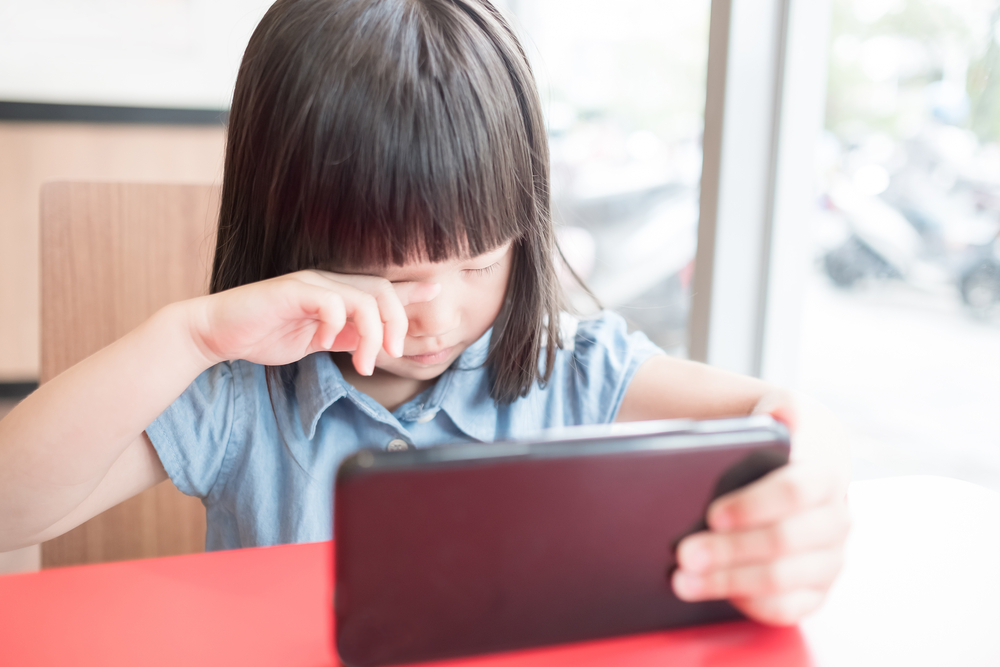
In today’s digital age, it’s almost impossible to avoid screens. From online learning to gaming and entertainment, children are spending more time than ever before looking at smartphones, tablets, and computers. But how does all this screen time affect your child’s eye development and what can you do to help protect their vision?
Screen Time and Eye Health
Children’s eyes are still developing, making them especially vulnerable to the effects of prolonged screen use. Extended screen time can lead to a condition known as digital eye strain, which can cause symptoms such as dry eyes, headaches, blurred vision, and trouble focusing. Additionally, screens require children to focus up close for long periods, which is not what their eyes are naturally designed to do.
How Screen Time Contributes to Myopia
Recent research has linked increased screen time with a higher risk of developing myopia (nearsightedness), a condition where distant objects appear blurry. Myopia in children has been on the rise worldwide, and experts believe that less time spent outdoors and more time on digital devices is a significant factor. When children focus on screens up close for hours each day, their eyes adapt to near work, which may contribute to the elongation of the eyeball and the development of myopia.
What You Can Do to Protect Your Child’s Eyes
There are several steps parents can take to help minimize the impact of screen time on their child’s eye health:
Limit Screen Time: Set daily limits for recreational screen use, and encourage regular breaks. Following the 20-20-20 rule can help: every 20 minutes, have your child look at something 20 feet away for at least 20 seconds.
Encourage More Outdoor Time: Spending more time outdoors has been shown to help reduce the risk of myopia in children. Aim for at least 1-2 hours of outdoor play every day.
Schedule Regular Pediatric Eye Exams: Early detection is crucial. Regular comprehensive eye exams can catch vision problems early, even before your child notices symptoms. Your optometrist can also provide personalized recommendations based on your child’s needs.
When to Consider Myopia Control Treatments
If your child is diagnosed with myopia, there are effective options to help slow its progression. Myopia control treatments such as special contact lenses, prescription eye drops, or orthokeratology (overnight lenses) can be considered, especially if your child’s prescription is increasing quickly or if there is a family history of high myopia. Your eye care provider can help you decide if these treatments are right for your child.
Schedule a Pediatric Eye Exam at Manchester Eyecare Today
As screens become an unavoidable part of childhood, it’s important to be proactive about your child’s eye health. By setting healthy boundaries around screen use, encouraging outdoor activities, and scheduling regular eye exams, you can help support healthy vision and reduce the risk of myopia.
Schedule your child’s next eye exam at Manchester Eyecare to learn more about how screen time affects vision and explore options for myopia control. Visit our office in North Manchester, Indiana, or call (260) 306-3937 to book an appointment today.









